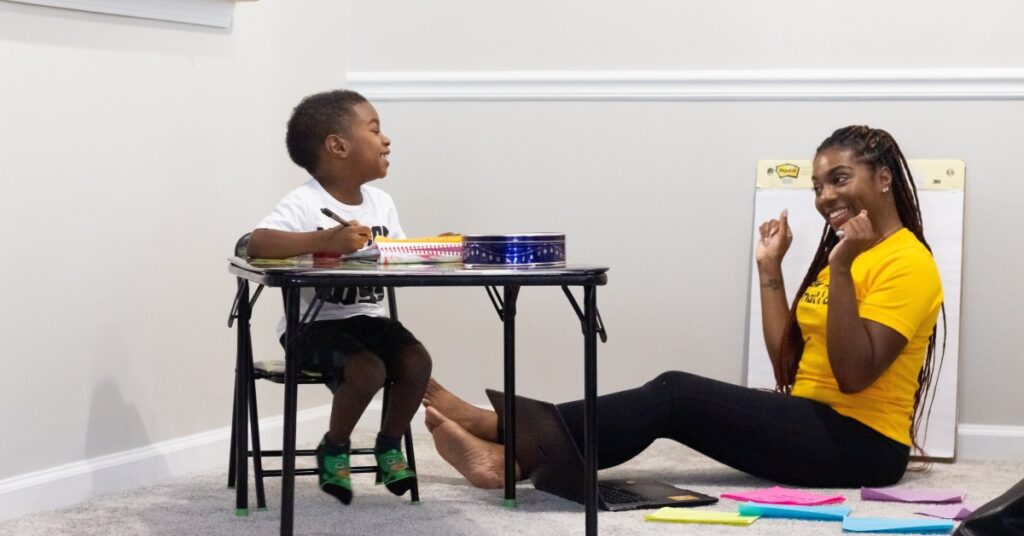
What Is a Master of Library and Information Science?
all LIS professionals must be information-literate. They can work in [...]

The educational system in the United States is desperate for special education teachers. Over the last decade, the number of students with autism served in public schools has increased by 177 percent and is the fastest-growing disability category.
Students with disabilities make up approximately 13 percent of the public school student population. Over 60 percent of students with disabilities spend the majority of their day in general education classrooms, and that number is growing every year.
While the need is great for special education teachers, states are struggling to find educators trained in the correct instructional and behavioral best practices. If you want to become a special education teacher, it is essential to select the right special education teacher training program.
But where do you start? Here are some things to look for in selecting a special education teaching program that is right for you.
Accreditation might seem like an obvious criterion, but with nearly two thousand universities and colleges in the United States offer teacher preparation programs, it is an important one. Check your state’s teacher credentialing website to learn which programs meet the requirements for you to become a teacher.
Perhaps you have people in your social media feed that attended one of the programs you are researching. Searching online is a fantastic starting point on your journey. As a prospective educator, engage with your community about what education programs will meet your goals.
| University and Program Name | Learn More |
|
Merrimack College:
Master of Education in Teacher Education
|
Like it or not, the future of education is inclusive. The number of students with low-incidence disabilities educated with their typical peers is growing every year. You can either go to a teacher education program that is ahead of the curve or attend one that will make you ill-equipped to navigate the challenges of teaching students with a variety of needs.
Many times, the teacher education program you attend will have relationships with neighboring school districts. When it is time for your practicum, you will be able to see which school systems already have an inclusive mindset.
There are times when there are no inclusive systems in the area, and you will have to be prepared for that as well. If that happens and you are interested in promoting inclusive practices, then it will be essential to know how to advocate for your students.
In some teacher education programs, graduate students teach the lower level or foundational courses. Make sure there is the right mix of associate and tenured professors as well as teaching assistants that are doing the instruction.
Also, what is the faculty’s experience in the classroom? Especially for special education best practices, your instructors must have practical experience in the classroom.
There are typically two kinds of special education credentials, one for high-incidence disabilities (learning disabilities and emotional behavior disorders) and low-incidence disabilities (like autism spectrum disorder and Down syndrome). As you look into a training program to be a special education teacher, what do you want your emphasis to be?
If you want to work with students with more significant disabilities, your coursework will be centered around challenging behavior, modifying curriculum, supporting medically fragile students, and teaching functional communication skills.
Another aspect of the program to consider is where you will receive your field experience and eventual student teaching. There are some programs that you will be able to start working right away with a provisional teaching credential. Other programs will require you to spend at least one semester in a student teaching placement.
Though working in a classroom while also going to a teacher education program might sound beneficial, there are some risks involved. “Learning on the job” is not for everyone and can often be a source of high stress. If you are a motivated learner and thrive in a fast-paced environment, then this option might be for you.
Finding a program that is close to where you live is another important factor. Will you consider a special education program that necessitates a long commute? Perhaps there are online options for your teaching degree?
Is there a public school in your neighborhood? Take a tour and meet with the administration. Most schools are happy to meet with people in the community to show off what is happening in their building.
Ideally, teacher education programs would not be so different across the United States. The truth is that special education programs vary significantly in quality and their emphasis on inclusive education.
Consider the risks versus the rewards of enrolling in an on-campus, online, or hybrid program. Having an online schedule will give you flexibility. You might miss out on the relationships an on-campus cohort model provides. Being a special education teacher can be an isolating profession; you are going to need to practice making connections with other educators.
(Last Updated on February 26, 2024)
Questions or feedback? Email editor@noodle.com

all LIS professionals must be information-literate. They can work in [...]

Elective courses can customize your MLIS degree to a career [...]

Do you intend to work in your community's public library [...]

For decades now, libraries have been attuned to new developments [...]

A more diverse teacher workforce could provide a key to [...]
Categorized as: Special Education, Education & Teaching